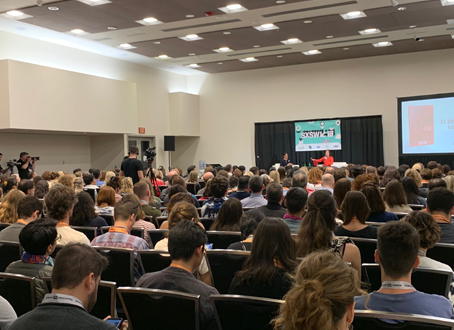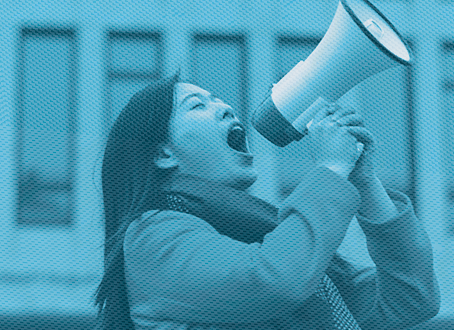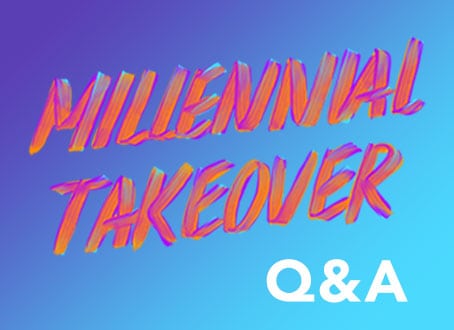June is upon us. For those of us at the Case Foundation, when we think June we think MCON, the Millennial Engagement Conference, and how it has helped reinforce the narrative of the Millennial generation as changemakers and Social Citizens.
MCON, now an annual gathering of thought leaders and next gen changemakers from across sectors, started six years ago when we worked with a then little-known team from Achieve. Back then, the one-day virtual convening brought together more than 2,500 online participants who were interested in understanding how the next generation connects, gives and gets engaged. From there things took off, with participation in MCON more than doubling every year since. This year, we anticipate more than 600 in-person attendees to join us at National Geographic’s headquarters in Washington, D.C., and 50,000 livestream viewers online.
Since the founding of MCON in 2011, we have also sponsored the Millennial Impact Report—one of the largest annual surveys focused on the Millennial generation that lifts up the voices of Millennials. Each year, we look at the trends, attitudes and behaviors of this cohort as it relates to “social good.” Or more simply put, how the generation is moving from idealism to action and mobilizing movements. Over the last five years, we have collaborated with Achieve to release new survey results to inform and empower the social sector. To date, there have been more than 50,000 downloads of the research.
The story that MCON and the Millennial Impact Report tell about the next generation is an exciting one. But it’s not the whole story. Before MCON and even before the Millennial Impact Report, we had commissioned research in 2008 that laid the groundwork for our ongoing body of research on the next generation and their role in “change the world” activities. Titled “Social Citizens,” this early report for the Case Foundation, authored by Allison Fine, highlighted important differences between the perception and reality of the Millennial generation. For instance, at the time there was a growing perception that the generation was apathetic, ambivalent and passive. Yet the research revealed a very different picture: a group of young citizens who were active, engaged and connected with the issues they cared about. One of my favorite examples? The research revealed that yes, this generation loves their cell phones, but 80 percent had used them to connect with a cause or nonprofit they cared about. I thought this was a great example of perception versus reality—when we see young people staring at their phones, do we really imagine it is part of their social activism?
This generation, as the opening letter to the report made clear, came of age at the turn of the 21st century. With early exposure to the internet and “always on” wireless communications, technology aptitude played a significant role in interactions with communities, causes and cohorts. This led to a pressing question: could these new “social citizens” and the virtual communities they are helping to build truly revolutionize civic engagement? This was the question we put on the table in 2008, and one we are still interrogating today. This was the genesis for MCON and the reason behind the annual survey that tracks and reports key characteristics and perspectives of this unique class of citizens known as Millennials.
As we stated in the initial report, “Some scholars believe that behavioral patterns begin to repeat every three generations. In this way, Millennials are tied to the Greatest Generation of World War II, with whom they share a sense of common purpose and idealism. But unlike earlier generations, how Millennials express their feelings is fundamentally different because of the digital times in which they live. They are Social Citizens, representing a nascent model and era of citizen participation that combines idealism, digital fluency and immersion in social causes.”
It’s eight years later and we continue to bring a focus to this generation that is now not only the largest generation represented in the U.S. labor force, but also represents a growing number of cross sector leaders, families and engaged citizens who will determine the future of our society. I personally continue to believe that Millennials are destined to follow in the footsteps of their great grandparents to become the next greatest generation. The first greatest generation was defined by the Great Depression, war and monumental changes in society—markers that are all too familiar to this generation, which has known decades of war, economic upheaval and one of the most significant, rapidly progressing technology revolutions of our time.
This month, as part of the MCON gathering, we will once again unveil new research that looks at the influence of politics on how Millennials engage with causes. Along with Achieve, we’re taking a fresh look at how Millennials connect, give and get engaged through an ongoing survey that will run until the end of the year. And again this year, we are left with perhaps more questions than answers as we try to understand how the political environment is shaping both attitudes and behaviors. Some of the early data we have reviewed is truly surprising and challenges commonly held beliefs and perceptions, just as we found in 2008. We will spend the coming weeks leading up to MCON 2016 with more peer reviews of the research, tapping other experts and “unpacking” what is truly surprising data. Was our methodology flawed? Is this year’s political environment disrupting Millennial engagement in untold ways? Or is there perhaps something deeper going on with this generation? When we do report the findings, our intent is to open a dialogue once again that helps light a path to active civic engagement.
As we identified in 2008, “Social Citizens are energetic and passionate about social causes; brimming with new approaches and ideas for problem solving; disposed of sharing the responsibilities and rewards of affecting change in the world; and equipped with the digital tools and people power to make it happen.” This is why we are committed to this work—because we believe this next generation holds the key to creating a better world. Yes, it is true that we need to remember that not all Social Citizens are Millennials, and not all Millennials are Social Citizens. But there are many overlapping characteristics and we hope that a better understanding of them will enable a brighter future for all.
I hope you will continue this exploration with me and join me at MCON from June 21-23 at the National Geographic campus in Washington, DC. Can’t make it? I invite you to share your thoughts about the next generation of Social Citizens with me on Twitter using @CaseFoundation and #MCON.





